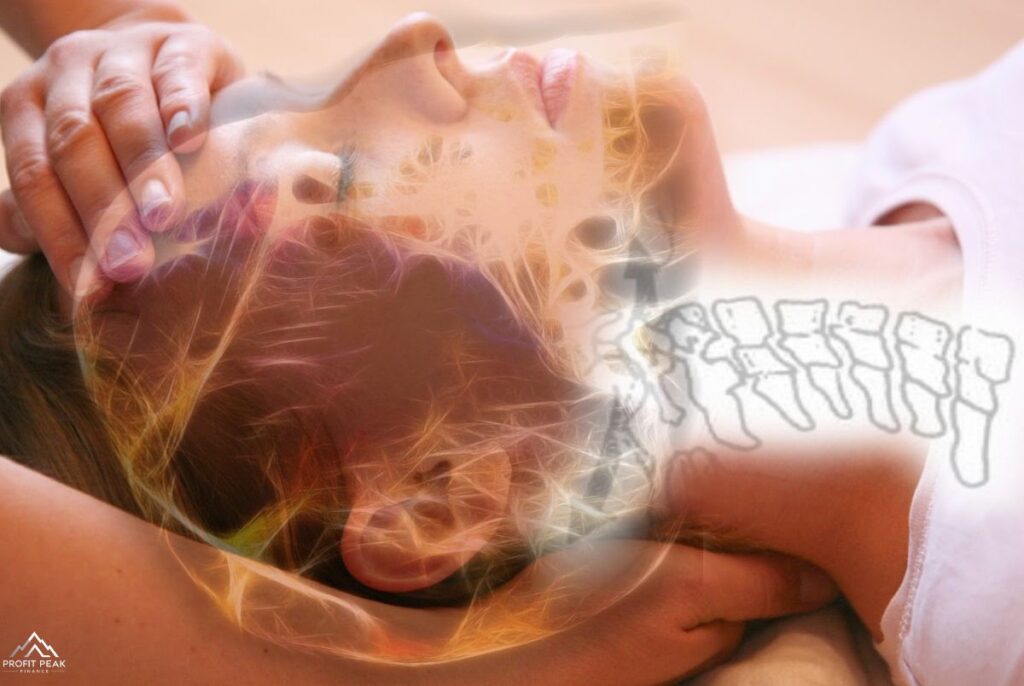Understanding Craniosacral Therapy
Craniosacral therapy is a gentle, non-invasive form of recovery that pursuits to restore balance and health in the body’s craniosacral device. This machine contains the membranes and cerebrospinal fluid that surround and protect the mind and spinal wire.
Through mild contact, trained practitioners use subtle moves to launch regulations in the craniosacral machine. This could assist alleviate ache, enhance mobility, and sell a feel of deep relaxation. Many humans are searching for out craniosacral therapy for conditions like:
- chronic ache
- Migraines and complications
- strain and tension
- annoying mind injuries
- Temporomandibular joint (TMJ) issues
- Autism spectrum problems
- And extra
With its holistic, complete-frame approach, craniosacral therapy may be an effective complementary remedy for diverse physical and emotional issues.But, finding a professional craniosacral therapist is crucial to experience its full blessings.
Qualities of an Excellent Craniosacral Therapist Near You
now not all craniosacral therapists are created identical. To make sure you get hold of effective care, search for practitioners with these key qualifications:
Proper Training and Certification
Reputable craniosacral therapists undergo extensive, specialized training programs that typically last 700+ hours over 2-3 years. Credible certifying bodies include:
- The Upledger Institute
- The Milne Institute
- The Bioaquanautic Institute
- CSCT Program (Craniosacral Therapy Educational Trust)
Steer clear of weekend workshops or short courses – craniosacral therapy requires advanced and serious training.
Substantial Hands-On Experience
Even as certification subjects, you will additionally need a therapist with sufficient actual-international experience, preferably 5+ years treating customers. A skilled practitioner has subtle their healing touch and may perceive and cope with your particular wishes.
| Experience Level | Time Practicing |
| Beginner | <2 years |
| Intermediate | 2-5 years |
| Advanced/Specialist | 5+ years |
Excellent Bedside Manner
Past technical ability, a pinnacle craniosacral therapist ought to make you feel comfortable, listened to, and empowered during classes. Features like empathy, intuition, and sturdy communique abilities are essential.
My craniosacral therapist has a wonderful calming presence. She really takes the time to understand my issues and explain what she’s doing. – Sarah R., client testimonial
Specialty Area (if Applicable)
Some craniosacral therapists choose to focus on certain conditions or populations, becoming specialists in areas like:
- Pediatrics
- Pregnancy/birth
- Brain injuries
- TMJ/jaw issues
- Orthopedics
- Visceral disorders
If you have a specific concern, a specialized practitioner may be a better fit for your needs.
Stellar Reviews and Reputation
Of course, you’ll want to find a therapist who is well-regarded with a history of successful client outcomes. Thoroughly vet practitioners by:
- Reading reviews on independent sites
- Asking trusted sources for referrals
- Checking if they belong to professional associations
A practitioner’s reputation can reveal a lot about the quality of care you can expect.
Read As: $1 Million Cargo Insurance Cost in the USA for 2023?
Where to Search for Local Craniosacral Practitioners

So where can you find experienced craniosacral therapists in your area? Here are some top recommendations:
Medical Professionals You Already See Your doctor, chiropractor, physical therapist, or massage therapist may have great referrals for skilled craniosacral providers. These professionals understand your health history and needs.
Online Directories Reputable associations maintain member directories for practitioners meeting training standards:
Social Media and Local Groups Check Facebook and Meetup for craniosacral groups in your city. Members often share favorite local practitioners.
Word-of-Mouth Don’t underestimate the power of personal recommendations! Ask friends, coworkers, or neighbors if they’ve had positive experiences with any therapists.
Vetting Potential Therapists in Your Area
Once you’ve identified some possibilities, it’s time to closely evaluate each therapist. Here are some key criteria to consider:
Credentials and Background Review their website and marketing materials. Legitimate therapists will proudly list their credentials, training, experience level, and specialties (if applicable).
Client Testimonials Look beyond just review scores – actually read through multiple reviews to understand the provider’s strengths and potential weaknesses.
Cost and Insurance Coverage Make sure their rates fit your budget. Inquire if they accept your health insurance (craniosacral therapy is sometimes covered).
Office Location and Hours Find a craniosacral therapist that’s conveniently located near your home/work. Their office hours should accommodate your schedule.
Personal Consultation Many providers offer free phone or in-person consultations. This allows you to get a feel for their bedside manner and see if you “click.”
Specialty Areas If you have a specific condition, prioritize specialists who have done additional study and have experience in that domain.
Read also As: Will Insurance Cover Hail Damage to Metal Roofs? What You Need to Know
What to Expect During a Craniosacral Therapy Session

If you’ve never experienced craniosacral work before, you may feel some apprehension – but there’s no need to worry! Here’s a general overview of what to expect:
The Initial Consultation
Your first visit will start with a consultation to discuss your health history, reasons for pursuing therapy, and goals. This allows the practitioner to fully understand your situation and develop an appropriate treatment plan.
“My therapist spent a lot of time just listening to me explain my chronic neck pain issues from past injuries. I could tell she really cared and wanted to help.” – Mike D.
The Treatment Setting
Craniosacral therapy takes place in a quiet, peaceful setting designed to promote relaxation. You’ll lie fully clothed on a massage table, with soft music playing in the background.
Some practitioners may use aromatic oils or dimmed lights to enhance the serene environment.
The Therapist’s Technique
Once you’re positioned comfortably, the therapist will apply gentle pressure to monitor the rhythm of the craniosacral system.
Using about 5 grams of force (the weight of a nickel!), they’ll make subtle movements to release any restrictions or imbalances they can detect.
You may feel mild sensations, but the process is completely pain-free. Many clients become so relaxed that they fall into a light sleep.
Typical Session Length
While length can vary depending on your needs, most craniosacral therapy sessions last 60-90 minutes. Specific techniques like SomatoEmotional Release may require longer appointments.
How You May Feel Afterward
After a session, clients typically report feelings of deep calm, rejuvenation, and often a significant decrease in their original symptoms like pain or headaches. Effects can last several days.
Some experience a temporary retracing of past trauma/issues as the body releases stored tension and emotions. This is normal and shows the work is creating positive change.
Conclusion
Finding the right craniosacral therapist in your local area is an important step toward better health and well-being. By following the guidance above, you can feel confident in choosing a high-quality, experienced practitioner you trust.
While proper credentials and training are musts, also prioritize a therapist’s compassionate approach and area of specialization. Don’t hesitate to be an informed patient – the best providers will partner with you throughout the healing process.
If you resonate with craniosacral therapy’s gentle power, take the first step towards your own revitalizing journey today. A skilled local therapist could be the gateway to incredible healing transformation.

Marathi author Anju Mary has made a mark in the literary world with her innovative storytelling and deep passion for reading. Her unique narrative style and creative approach offer readers a distinctive and enriching experience, solidifying her reputation as a prominent writer.











